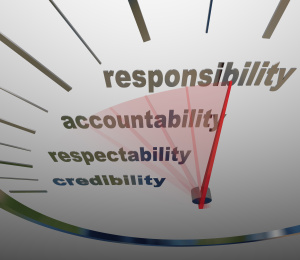 At a meeting last night I ran into an old acquaintance who is trying to sober up for the umpteenth time. He reminds me a lot of me. I went to my first Twelve Step meeting when I was twenty-eight. I finally sobered up when I was forty-two. I can’t even begin to count the number of times I took a twenty-four hour chip only to once again relapse and dash the hopes of those who loved me.
At a meeting last night I ran into an old acquaintance who is trying to sober up for the umpteenth time. He reminds me a lot of me. I went to my first Twelve Step meeting when I was twenty-eight. I finally sobered up when I was forty-two. I can’t even begin to count the number of times I took a twenty-four hour chip only to once again relapse and dash the hopes of those who loved me.
After the meeting I began picking up books, as I often do, to return them to the bookcase. My wife–my more compassionate counterpart–caught my eye and made sure that I shared some kind words with that acquaintance before he slipped out.
I’m so glad she did. There is no state more lonely and fear-riddled than early sobriety. I know that man and know many members of his family. What a shame it would have been to let him slip out without exchanging some kind words … without making him feel like he had come home.
Twelve Step recovery relies, in part, on fellowship and unity. I am responsible for making people feel at home. Regardless of how many failed attempts they have under their belts, no matter how damaged they view themselves, addicts and alcoholics always needs to feel like they are welcomed back. I am reminded of a story told by Max Lucado of a poor Brazilian girl named Christina:
“Longing to leave her poor Brazilian neighborhood, Christina wanted to see the world. Discontent with a home having only a pallet on the floor, a washbasin, and a wood-burning stove, she dreamed of a better life in the city.
One morning she slipped away, breaking her mother’s heart. Knowing what life on the streets would be like for her young, attractive daughter, Maria hurriedly packed to go find her. On her way to the bus stop she entered a drugstore to get one last thing. Pictures. She sat in the photograph booth, closed the curtain, and spent all she could on pictures of herself.
With her purse full of small black-and-white photos, she boarded the next bus to Rio de Janeiro. Maria knew Christina had no way of earning money. She also knew that her daughter was too stubborn to give up. When pride meets hunger, a human will do things that were before unthinkable. Knowing this, Maria began her search.
Bars, hotels, nightclubs, any place with the reputation for street walkers or prostitutes. She went to them all. And at each place she left her picture – taped on a bathroom mirror, tacked to a hotel bulletin board, fastened to a corner phone booth. And on the back of each photo she wrote a note.
It wasn’t too long before both the money and the pictures ran out, and Maria had to go home. The weary mother wept as the bus began its long journey back to her small village.
It was a few weeks later that young Christina descended the hotel stairs. Her young face was tired. Her brown eyes no longer danced with youth, but spoke of pain and fear. Her laughter was broken. Her dream had become a nightmare. A thousand times over she had longed to trade these countless beds for her secure pallet. Yet the little village was, in many ways, too far away. As she reached the bottom of the stairs, her eyes noticed a familiar face. She looked again, and there on the lobby mirror was a small picture of her mother.
Christina’s eyes burned and her throat tightened as she walked across the room and removed the small photo. Written on the back was this compelling invitation. ‘Whatever you have done, whatever you have become, it doesn’t matter. Please come home.’
She did.”
I believe that the Higher Power behind so many successful recoveries is ever welcoming, never judging. Having tapped into that power and having been freed of my addiction I too must do all I can to make the rooms feel like a welcoming home.
Last night was a much needed reminder of A.A’s Responsibility Statement:
“I am responsible …
When anyone, anywhere,
reaches out for help, I want
the hand of A.A. always to be there.
And for that: I am responsible.”
In addition to being responsible, I need also remember that we don’t put too hard of a restriction on what constitutes “reaching out.” Addicts and alcoholics tend to live in isolation. Rare is the person who comes into the rooms proclaiming, “I need help.” Sometime just darkening the doorway of the rooms is enough to constitute and plea for help. We need to make these people feel like they’ve come home.
Follow this blog…












Add Your Comment